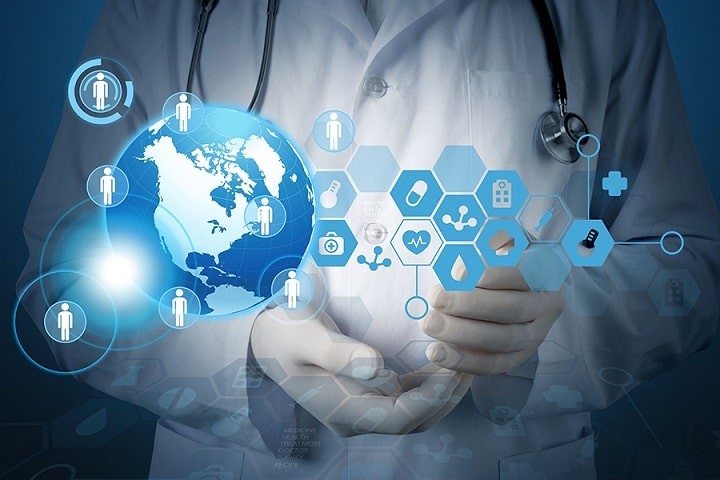
Digital Health Systems
Digitization plays a crucial role in strengthening community healthcare workers (CHWs) in Africa by improving their effectiveness, efficiency, and overall impact. Below are key areas that GHSS is focusing on to strengthen health systems in Africa and empower communities:
- Training and Education: Digital platforms can provide CHWs with access to training materials, educational resources, and e-learning modules. They can undergo digital training programs to enhance their knowledge and skills, allowing them to deliver better healthcare services.
- Data Management: Digitization enables better management and utilization of health data. CHWs can use mobile applications or electronic record-keeping systems to collect, track, and analyze patient data. This improves the accuracy and timeliness of health information, enabling CHWs to make informed decisions and provide personalized care.
- Mobile Health (mHealth) Applications: Mobile applications specifically designed for CHWs can assist them in various tasks such as patient monitoring, health promotion, data collection, and reporting. These apps can provide educational resources, treatment protocols, and reminders to enhance CHWs’ ability to provide quality care.
- Remote Consultations and Telemedicine: Digitization allows CHWs to connect with healthcare professionals remotely, seeking guidance, consultation, or second opinions. Through telemedicine, CHWs can receive support, discuss challenging cases, and improve their decision-making processes.
- Supply Chain Management: Digitization can help streamline the supply chain management of essential medicines, vaccines, and medical supplies. CHWs can use digital tools to track inventories, order requests, and monitor stock levels, ensuring timely and sufficient availability of healthcare resources.
- Decision Support Systems: Digitized decision support systems provide CHWs with access to clinical guidelines, diagnostic algorithms, and treatment protocols. This assists them in making accurate diagnoses, initiating appropriate treatments, and reducing errors.
- Monitoring and Evaluation: Digitization enables real-time data monitoring and evaluation of CHW programs. This helps health authorities and organizations to assess the performance of CHWs, identify gaps, and make evidence-based decisions to improve the quality and impact of community healthcare services.
- Communication and Coordination: Digital platforms facilitate communication and coordination among CHWs, healthcare professionals, and health system authorities. It allows for seamless sharing of information, updates, and referrals, fostering collaboration and efficient healthcare service delivery.
Overall, digitization empowers CHWs by equipping them with better tools, resources, and access to information. It enhances their capacity to deliver essential healthcare services, improve health outcomes, and strengthen community healthcare systems in Africa.
#3
1,671,585 persons sensitized on COVID-19 preventions, signs and symptoms in Chad.
Digital Health Systems
At GHSS, we believe that digitization can play a significant role in advancing healthcare in Africa. As an organization, we are focused in several areas of work In digitization:
Our Process
Electronic Health Records (EHRs)
Telemedicine and Telehealth
Health Information Exchange
Mobile Health (mHealth)
Data Analytics and Population Health Management
Supply Chain Management
Health Education and Awareness
Supply Chain Management
#1
200 CHWs and 10 supervisors selected across 23 regional health provinces in Chad trained.
In November 2020, GHSS obtained a subcontract from Africa Field Epidemiology Network (AFENET) to boost the response against COVID-19 in Chad and the Republic of Burundi.
#2
400 CHWs and 20 supervisors trained across the Republic of Burundi. 1 field bag, 1 thermo flask, 1 polo shirt, 1 t-shirt, 1 raincoat, 12 bottles of hydro-alcoholic gel and 2 boxes of 50 facemask each given to each CHWs.
#3
1,671,585 persons sensitized on COVID-19 preventions, signs and symptoms in Chad.
